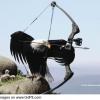
|
Search the Community
Showing results for tags 'Baghdad'.
-
New Kirkuk governor will be decided soon: PUK By Rudaw 23 hours ago Khalid Shwani’s name has been floated as a possible candidate for the post of Kirkuk governor. File photo: Rudaw ERBIL, Kurdistan – A new candidate for the post of Kirkuk governor has been floated by the Patriotic Union of Kurdistan (PUK) as the province remains in political limbo and objections were raised about the PUK’s first nominee. The PUK and KDP expect to reach an agreement on the candidate soon. “The position of Kirkuk’s governor is for the Kurds and it’s the PUK’s share. Among the names discussed, Khalid Shwani is a very suitable candidate because he is from Kirkuk and is familiar with the place,” Salah Dalo, a member of Kurdistan Democratic Party’s (KDP) politburo, told Rudaw on Tuesday. Political posts in the disputed province are shared among the ethnic groups with the position of governor given to the Kurds. Khalid Shwani was previously a member of the Iraqi parliament within the PUK faction. He is currently a member of the party’s politburo. His name was floated in talks between the PUK and KDP, the two ruling parties in the Kurdistan Region. Shwani said on Tuesday he has not been broached on the subject, however. An Iraqi court ordered Kirkuk’s Kurdish governor Najmaldin Karim removed from his post ahead of the September referendum because of his support for the independence vote and backing the decision to raise the Kurdistan flag in the disputed province earlier in the 2017. Karim left the city when the Iraqi army took over in mid-October and Baghdad assigned Rakan al-Jabouri, an Arab, as interim governor. PUK had first suggested Rizgar Ali to fill the position, but the KDP has opposed his candidacy, claiming he belongs to the group that “sold” Kirkuk to Baghdad. The final decision rests with the PUK, Dalo explained. PUK’s spokesperson Saad Pira said they are not in dispute with the KDP over the position. “We will soon decide on who will become the governor,” said Pira in a statement to Rudaw on Tuesday. Prime Minister Nechirvan Barzani, also deputy head of the KDP, confirmed the two parties have discussed the matter, “but we are yet to reach a decision. There will be more meetings on the matter,” he told reporters on Monday. Kirkuk’s Provincial Council has failed to meet regularly since the disputed province came under Iraqi control in mid-October and many of the Kurdish parties fled the city. The KDP did not attend a meeting of the Kurdish parties in Kirkuk on Monday. The party has said they won’t attend a meeting in the city because it is “occupied.” The KDP has asked for the provincial council to meet at a location outside of Kirkuk. Meanwhile, Kurdish parties have said the provincial council is essentially defunct and have accused the acting Governor Jabouri of exploiting the power void. There are also concerns of a new wave of Arabization taking place.
-
Interesting. . . from the "Where are they now" files: http://news.yahoo.com/saddam-hussein-billion-dollar-bank-080000719.html
- 5 replies
-
- 1
-

-
- Dinar
- Central Bank of Iraq
-
(and 4 more)
Tagged with:
-
Anbar announces the liberalization of 70% of Saqlawiyah area north of Fallujah By Abdelhak Mamoun - Jul 9, 2015 (IraqiNews.com) Anbar – Political adviser to the governor of Anbar Hikmat Sleiman announced on Thursday the liberalization of 70% of Saqlawiyah area north of Fallujah, indicating that the security forces and al-Hashed al-Sha’bi militia took control of several government institutions of the city center. Suleiman said in an interview for IraqiNews.com, “The security forces launched a military operation participated by the forces of the Iraqi army, al-Hashed al-Sha’bi militia and Saqlawiyah tribal fighters backed by army aviation,” explaining that, “these forces managed to liberate 70% of Saqlawiyah area north of Fallujah.” Suleiman added, “The troops were able to liberate the local council building, the police station, the health center and Saqlawiyah mosque,” noting that “they took control of all of those departments.”
-
Security forces kill ISIS most prominent explosives expert in tactical operation east of Ramadi By Amre Sarhan - Jul 9, 2015 (IraqiNews.com) Diyali – On Wednesday, an official within al-Hashed al-Sha’bi militia in Diyali province announced the killing of one of the most prominent explosives expert in the ranks of the ISIS during a tactical operation in east of Ramadi. Jabbar Mamouri, an official of al-Hashed al-Sha’bi, stated for IraqiNews.com, “A special security force backed by al-Hashed al-Sha’bi militia conducted a tactical operation in the western part of the area of al-Karm, located 53 km east of Ramadi,” pointing out that, “The force succeeded in killing the so-called Abu Obeida al-Qairawani, a Tunisian national, along with three of his companions, in addition to destroying a workshop for manufacturing explosives and mines.” “Qairawani is considered as one of the most prominent explosives experts in ISIS,” he added.
-
Kurdistan region endorses the political and scientific program to remove obstacles to the implementation of the oil deal with Baghdad Friday February 27, 2015 00:08 [baghdad-where] KRG announced on Thursday endorsement of the scientific and political program to remove obstacles to the implementation of the oil agreement with Baghdad. A statement by the Kurdistan Democratic Party that "the region's president, Massoud Barzani met on Thursday evening at the headquarters of the province with the main political forces in Kurdistan to discuss several economic and political issues, security and discuss the current situation in Iraq and the Kurdistan regional government and the financial crisis." The complaint came out of the meeting endorsed the seven-point strategy, supported by Kurdish forces, according to the statement reads in part: First, the meeting expressed its gratitude to the spirit of the unlimited redemption and valor of the Peshmerga on the battlefield, and the high values of steadfastness and heroism and promise a source of pride for the Kurds and Kurdistan and Democrats in the region and the world. Second, emphasis was placed on the unity of the Kurdish political forces in Iraq and the Kurdistan region and the row to break a political and military equation in the Kurdistan region, and the achievement of political, administrative and military victories and progress towards final victory. Third, in order to deliver the unity of political forces of Kurdistan to the top of political trust, meeting recommended the granting of the parties involved in the cabin eighth of the Government of the county change, the Islamic Union and the Islamic Group] positions and administrative seats and quotas in the federal, regional and provincial government, according to their merits election. Fourth: see the people and the government of Kurdistan that the province has the right, without doubt, the extraction and sale of oil in accordance with Article 112 and 115 of the permanent Iraqi constitution within the legal process and rules and law, and the commitment of both sides General Budget Law for Iraq Fed for the year 2015 to ensure that the economy of the region, who addresses the fundamental problem of the budget and the salaries of citizens Kurdistan and the Kurdistan Regional Government to implement all the clauses of the agreement signed with the government in Baghdad, and that the Baghdad government implement those Alnpod Also, the artistic and technically differences can be addressed through dialogue and discussions. " The statement pointed out that "In this area was approved on the political and scientific program in order to remove obstacles to the implementation of the Convention." Fifth Meeting House of Representatives and the Iraqi government and the Alliance of Shiite and Sunni powers demanding that Aajalo of political disputes and technical problems in all circumstances an obstacle to the citizens of the Kurdistan salaries, as well as the support of the Kurdistan Peshmerga and insurance paid just like the army and the rest of the Iraqi armed forces. Sixth: to be for the presidency of the region and the government and the Parliament of Kurdistan diplomat and an international program to safeguard the largest of countries and international centers of political support, as well as to get the support of the Peshmerga in the logistics field and provide it with heavy weapons. Seventh: The meeting emphasized his support for the Kurdistan Regional Government, in the hope that the government will continue in its efforts to address the problem of the budget and salaries. He assembled according to the statement about "hope to be able to and in accordance with the tight program and greater capacity, to achieve victory Strategy on Daash as soon as possible, and that these become the basis of the root treatment of all political, economic and social problems in Iraq and the Kurdistan region, including the implementation of Article 140 of the Iraqi Constitution victories." it's over
-
BAGHDAD (AP) — Residents of Mosul have watched helplessly as extremists ruling the northern Iraqi city blew up some of their most beloved landmarks and shrines to impose a stark vision of Islam. Next up for destruction, they feared: the Crooked Minaret, a more than 840-year-old tower that leans like Italy's Tower of Pisa. But over the weekend, residents pushed back. When fighters from the Islamic State group loaded with heavy explosives converged on the site, Mosulis living nearby rushed to the courtyard below the minaret, sat on the ground and linked arms to form a human chain to protect it, two residents who witnessed the event told The Associated Press on Monday. They told the fighters, If you blow up the minaret, you'll have to kill us too, the witnesses said. The militants backed down and left, said the witnesses, who spoke on condition of anonymity for fear of retaliation from the militants. But residents are certain the militants will try again. Over the past two weeks, the extremists ruling Iraq's second largest city have shrugged off previous restraint and embarked on a brutal campaign to purge Mosul of anything that challenges their radical interpretation of Islam, even Muslim shrines that in their iconoclastic fervor they condemn as apostasy. The scene on Saturday was a startling show of bravery against a group that has shown little compunction against killing anyone who resists it. It reflects the horror among some residents over what has become of their beloved city. "The bombing of shrines ... has nothing to do with Islam," Abu Abaida, 44, a government employee, told the AP by phone from the city. "They are erasing the culture and history of Mosul." Like other residents, he spoke to the AP on condition he be identified by a nickname or first name for fear of retaliation. When militants from the Islamic State group first swept into in Mosul in June, they proclaimed themselves the mainly Sunni city's savior from the Shiite-led Iraqi government in Baghdad. Their first priority was to rebuild infrastructure and provide services like garbage collection that the government had neglected. They held off from implementing their strict version of Islamic law, urging modesty for women but doing little to enforce it and generally leaving alone the Christian population that had not already fled. The aim, it seemed, was to avoid alienating a Sunni community whose support they needed. Now, the honeymoon is over. In recent weeks, they have purged the city of nearly its entire Christian population, moved to restrict women and began the systematic destruction of city landmarks. "No place is safe," said Dia, an engineering professor in Mosul. "If I say one wrong thing, I am dead." The Sunni militants target Sunni Muslim shrines because the sites are dedicated to popular historical religious figures. In the radicals' eyes, that encourages worship of others besides God — the worst of apostasies. The Crooked Minaret — al-Manara al-Hadba in Arabic — seems to be despised by the militants because it has become a national symbol, and nationalism is anathema to the radicals. The minaret is pictured on Iraq's 10,000-dinar bill. Moreover, local legends surround the minaret, and extremists generally see such stories as un-Islamic inventions. Built in 1172 as part of the Great al-Nour Mosque, it leans about eight feet (2.4 meters) off perpendicular. Local lore has it that the minaret tilts because it bowed in reverence to the Prophet Muhammad as he made an ascent to heaven. Nearly daily, the militants have been destroying some of the city's most famed sites. On Thursday, they lay a wall of explosives around the Mosque of the Prophet Younis — or Jonah, the prophet who in both the Bible and Quran was swallowed by a whale. They ordered everyone out of the shrine, which is said to contain the prophet's tomb, and blew it up. The next day, it was the turn of the Mosque of Sheeth, or Seth, said to be the burial site of the third son of Adam and Eve. On Saturday, they reduced to rubble the Mosque of the Prophet Jirjis. Last week, they removed the crosses on the domes and brick walls of the 1,800-year old Mar Behnam monastery, then stormed it, forcing the monks and priest to flee or face death. The move came days after jihadists proclaimed over loudspeakers from mosques that Christians must convert to Islam, pay a tax or die, prompting the flight of almost all the Christians who remained in the city. Women's rights are now being abruptly restricted. The militants hung banners at on the wall of the Heibat Khatoun mosque before Friday prayers instructing women to wear loose clothing and cover their faces. No bright colors. No patterns. They then distributed a statement to tailors and shops that sell women's clothes informing them of their newly imposed dress code, shopkeepers told the AP. An Associated Press reporter saw several female mannequins in shops with their faces covered. "Even at the time of Prophet Muhammad, the there was no face veil," said Um Farouq, 55, a Mosul resident. "These people with Daesh are just making up ideas that do not exist in Islamic Shariah," she said, using the Arabic acronym for the Islamic State group. The group had already shown its true colors in Syria, where it holds a large swath of the east and north. There, its fighters have banned music, imposed full veils, imposed taxes on Christians and killed people in main squares for defying their Shariah rules. Earlier this month, for the first time, they stoned to death two women accused of adultery. Iraq's Mosul was once famed for its religious and ethnic diversity, and it is one of few cities in Iraq where a significant number of Christians remained after the U.S.-led invasion. It was a traditional stronghold both for Islamic conservatives and more secular pan-Arab nationalists. Mosulis who cannot bear the extremists' rule have joined more than a million other Iraqis who have fled their homes in areas under the group's control. "The situation is becoming really miserable for us," said Abdul-Rahman Odai, a 25-year-old from Mosul who fled to the Kurdish province of Dohuk with his family. He said militants have seized government buildings and the homes of local officials. "They will not stop until they take everything."
-
Kurdish parliamentarian: consultations to form a government in its final stages and the challenges ahead of us problems with Baghdad FRIDAY, 31 DECEMBER / 2 JANUARY 2014 11:45 Twilight News / revealed a member of the Kurdistan Parliament Pierre Dosky for the consultations to form the provincial government reached its final stages, adding that the most prominent challenges awaiting Parliament is problems with Baghdad and find appropriate solutions. Despite the passage of more than four months to hold parliamentary elections in the Kurdistan Region, are still ongoing negotiations and consultations between the winning parties in order to reach a consensus on the selection of the next government. He Dosky, in an interview with "Twilight News", that consultations are continuing in order to form the Kurdistan Regional Government to include all political forces winning in the last election, including small entities, and for that there is a government "of national unity" in the region. He added that one of the reasons for the delay announcement line-up is the difficulty of compatibility between all these components and their claims in bags and ministerial positions, likely to announce this lineup soon as they hit the consultations to the final stages. He pointed out that because of the change that took place in the political map of the region and the desire of all parties to join the government, the delay in the announcement of the government is "is normal and expected." On the possibility of the presence of the opposition in parliament, Dosky expressed the hope that all political parties present in parliament supporting the government, at the same time, all the diagnosis of disorders with any minister or official is revealed imbalances in his ministry. Regarding the main challenges that await parliamentarians after the formation of the government, explained by saying that there are many outstanding issues between the province and the federal government in Baghdad, and expressed hope that is to overcome these problems and with the participation of all parties to reach a common formula to address the federal government and find a suitable solution to these problems. He pointed out that "the masses of the people of the Kurdistan regional authorities are waiting to provide good services to elevate the level of sacrifices they have made and the enthusiasm they have shown in the last election." He guessed Dosky to be announced for the new government in "less than two weeks." The parliamentary elections in the Kurdistan Region have been performed on 21 of the month of September of last year and resulted in getting the Kurdistan Democratic headed by the region's president, Massoud Barzani, on the first rank achieved the 38 seats out of 111 seats make up the Kurdistan Parliament, as befell the MDC led by Mustafa Nushirwan seconds after gaining 24 seats, followed by the Patriotic Union of Kurdistan achieved the 18 seats, the Islamic Union with 10 seats and the Jemaah Islamiyah six seats.
-
http://mnr.krg.org/index.php/en/press-releases/320-ministry-of-natural-resources-announcement-on-oil-export-sales Ministry of Natural Resources Announcement on Oil Export Sales Erbi, Kurdistan Region, Iraq - The KRG Ministry of Natural Resources (MNR) gives public notice of the commencement of the sale of its first shipment of crude oil exported via Kurdistan Region’s new pipeline through Turkey to the Port of Ceyhan. MNR anticipates the sale of the first parcel of two million barrels of exported crude oil to occur at the end of January 2014. Thereafter, monthly parcels will increase to 4 million barrels by the end of February and 6 million by the end of March, then steadily stepping up to 10-12 million barrels for the month of December 2014. At the beginning of this month, some initial quantities of crude oil produced from the Tawke field began flowing through Kurdistan’s new pipeline system to the Turkish port of Ceyhan, and crude oil from Taq-Taq and other producing fields will soon be added to the export system, resulting in a blended medium crude oil quality of 30 to 32 Degrees API. Prospective buyers can lift the crude oil shipments in the port of Ceyhan under similar arrangements as those used for SOMO (the State Oil Marketing Organisation) for oil export from Kirkuk. Details of each parcel will be published by MNR in due course. All tenders will be competitive and based on international pricing. In order to ensure full transparency of the sales and contracting process, independent observers will be invited to each tender, together with representatives of the oil companies that have produced the exported oil. MNR also invites representatives of SOMO to join the process as observers. At this stage, MNR is inviting reputable and financially capable companies to register with MNR their interest in participating in the January tender or any of the future tenders. All applicants should in the first instance write to the Ministry of Natural Resources with information about their company profile, track record and financial status via email KOMO@mnr.krg.org. All submissions should be addressed to: KOMO - Kurdistan Oil Marketing Organization, Ministry of Natural Resources, Council of Ministers, Kurdistan Regional Government, Erbil, Kurdistan Region, Iraq Read more at http://www.stockhouse.com/companies/bullboard/v.snm/shamaran-petroleum-corp?postid=22070457#6gAAmVbX0UYiABbb.99
-
http://12160.info/page/citigroup-venturing-into-iraq-gets-approval-for-baghdad-office Citigroup Venturing Into Iraq Gets Approval for Baghdad Office Citigroup Inc. © got Iraqi approval to open an office in Baghdad, as it seeks to become the first U.S. bank to enter a country where fewer than one in five people have an account. Iraq’s central bank gave preliminary consent to set up the representative office, Citigroup, the third-largest U.S. lender, said in an e-mailed statement today. Former diplomat Dennis Flannery, who has run the bank’s Iraqi desk from Amman, Jordan, for two years, will manage the operation. Branches are also planned for Erbil and Basra, it said. “Iraq is an important market, with an economy that has substantial potential over time,” said Jame Cowles, chief executive officer for Europe, the Middle East and Africa. http://www.bloomberg.com/news/2013-06-24/citigroup-venturing-into-iraq-gets-approval-for-baghdad-office.html
-
BAGHDAD / News Network Iraq - meeting saw the presidency of parliament with the leaders of political blocs in the presence of Minister executives at the center and the region atmosphere tense and conflicting opinions and open files precedent. Has revealed parliamentary source said in a statement today, that the Kurdistan region carrying two solutions only two to the cause of the financial budget and differences with the federal government about entitlements oil companies in the region., the source said, "The Minister of Natural Resources in the region carrying two solutions to the issue of the financial budget first is to pay the government for the $ 4.2 trillion dinars to the Kurdistan region and be within an item in the financial budget." and added that "The second solution is In that sells Kurdistan oil this amount directly to companies and receive this amount from these companies directly. "He explained that the solutions did not reach an agreement on them as the oil minister in the central government announced that an amount of pent-region of 10.5 trillion dinars was paid region to the center after selling oil How else are given this amount to companies and the center did not receive the proceeds from the sale of oil. The source indicated that "the oil minister proposed the idea of relating that are transfers $ 750 billion dinars from the Ministry's budget to the Kurdistan region to be the amount in the budget for the Kurdistan region about the dues of oil companies trillion and 500 billion dinars as the atmosphere in the talks between the blocs was marred by tension and difficulty of reaching a solution. "turn pointed Chairman of the Board of Supreme Audit Abdel Basset Turki said the government has no right to allocate any amount of outside tables in the budget. He said the claims of some of the possible use of treasury transfers in bridging dues Kurdistan region is a violation of constitutional and legal government can not do without identified in the financial budget. He said the solution is to re-budget, to the government and increase to be covered dues Kurdistan. Among source said Haider Abadi, head of the Finance Committee between he can not increase the budget without increasing revenues. Herren added that any budget where revenues and expenses and can not increase expenses without increasing revenues and could Region Kurdistan to send his trust funds is ten trillion and a half in order to increase revenue and thus increase the budget ceiling. was chairman of the parliament's meeting with the heads of blocs and the ministers executives in the federal authority and the Kurdistan Regional Government.







